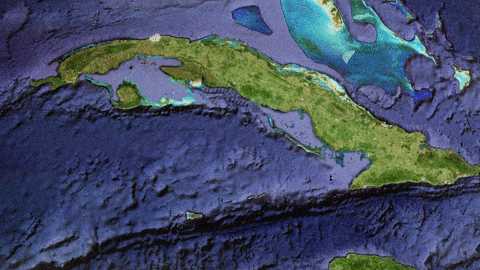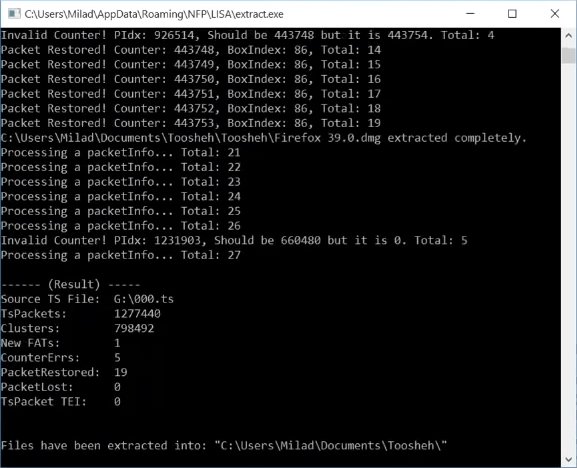Cuban CDN
Wealthy Cubans connect to the Internet through one of the rare public hotspots. Photo: John Graham-Cumming
English programmer John Graham-Cumming spoke about his amazing journey to Cuba . They say that in this country you can meet a girl for a couple of dollars, and live a whole month for 10-20 dollars. However, the Internet in Cuba is very expensive. There are only 175 public WiFi access points in the whole country, where the slow Internet is charged at 2 convertible pesos per hour of operation (convertible peso replaces the dollar and is equal to it). There is also a mobile Internet for the price of 1 convertible peso ($ 1) per megabyte. Maps for WiFi access are sold strictly according to the passport in the state liaison offices, although you can buy them on the black market anonymously at a price one and a half times higher (or exchange them for a foreign T-shirt, such things are very valuable in Cuba). But it is risky and faces imprisonment.
Intelligent Cubans found an original way out of the situation. John Graham-Cumming remarked that so many people on the Island of Freedom use floppinet , that is, a “floppy network” in which physical storage media are used to transfer files from the Internet.
The Englishman who came to Cuba says that he wanted to use the mobile Internet, but when trying to log into the CloudFlare account via TLS, certificate errors popped up all the time for an unknown reason, so that in the end he abandoned this idea.
')
From local residents, John Graham-Cumming learned of the existence of the so-called “private CDN” - El Paquete Semanal . Of course, the content delivery network (CDN) is called a joke. Just in the local floppy El Paquete Semanal performs the same role as the CDN on the Internet: delivers content to users. The file delivery is handled by a network of dealers and couriers; this is an advanced and well-developed business. For example, in Havana, the network of file delivery is controlled by two main dealers: Dani and Ali .
El Paquete Semanal is a weekly compilation of fresh files from the Internet, approximately 1 terabyte in size, which is usually distributed on an external hard drive. The selection includes fresh Hollywood films, new series of TV series, documentaries, sports competitions, music videos, audio files with music albums, new mobile applications, magazines, PDF files with the latest editions of English-speaking and Spanish-language newspapers and even entire websites. For only 2 convertible pesos per week, Cuban gets access to a giant repository of new files, regardless of copyright.

Similar to a stoned bum, as journalists write, Dani is one of two files that are looking for delivery in Havana. Photo: Vox Media / Johnny Harris
According to rumors, most of the files dealers extract from the Internet through illegal satellite dishes, hidden in water tanks on the roofs of houses. Free access to the Internet without censorship is a rare phenomenon for Cuba, and the speed is very low, so the compilers of the El Paquete Semanal file catalog make a serious effort to compile a collection. According to another version, visitors from Miami bring their files on hard drives. Then the files are quickly distributed through the courier network throughout Cuba.

Files are quickly distributed through a courier network throughout Cuba. Illustration: Vox Media
“Everyone has his own task,” says Dany about the work of the Cuban CDN. - Everyone collects a certain type of content and brings it to me. I sort it, edit it and prepare it for distribution. Then we send it by couriers. ”
In fact, this is not an easy job. For example, all movies must be accompanied by subtitles, Dani complains. He and his colleagues spend a lot of time searching for Spanish-language subtitles for pirated recordings from American TV channels.
By the way, the weekly update of El Paquete Semanal includes updates of antivirus databases for Avast, AVG, Avira, BitDefender, ClamAV, Kaspersky, McAfee, Microsoft Security Essentials, ESET and Norton antiviruses.
The latest edition of El Paquete Semanal is not officially announced, but everyone knows when it comes out. Information spreads from mouth to mouth, and you can buy the issue through friends. Winchester will bring you home and overwrite all the information on your computer. For example, the release for March 21, 2016 was a volume of 815.25 GB and contained 14,208 files, writes John Graham-Cumming. He managed to find in the program archive three files infected by viruses, but all of them are caught by the antivirus with the fresh databases that come with it.

El Paquete Semanal release for March 21, 2016. Screenshot: John Graham-Cumming
Cubans say children are looking forward to the new El Paquete Semanal release with new cartoons and music.
Adults also have something to read. Thus, the issue for March 21, 2016 contains 296 fresh magazines in Spanish and 53 magazines in English, including the Economist for March 5, Cosmopolitan (April), Bloomberg Businessweek (March 14), Maxim (March), New Scientist ( March 5), The Week (March 11) and a large number of other specialized magazines. There is also a British tabloid "for adults" Sunday Sport.
The mobile apps directory contains files in the .apk (for Android) and .ipa (for iOS) formats, there are new programs and updates for popular applications like Instagram and WhatsApp.
The media archive contains 4909 JPEG files, 2334 MP3 files, 1804 MP4 files, 219 AVI and 74 MKV. In general, the entertainment just enough for the next week.
El Paquete Semanal is Cuban Netflix, Hulu, Spotify and YouTube all in one. Dani says the Cuban authorities did not raid them. The authorities have no special complaints, because the guys do not distribute any political or revolutionary content, only entertainment information. No pornography.
For Cubans, the latest issues of El Paquete Semanal are not just entertainment. This is vital information. Full versions of the updated sites with ads help to find housing, jobs or other ads. Offline versions of sites can be studied without access to the Internet.
The work of the “Cuban CDN” resembles the system of distribution of “forbidden” files in Iran .
In Iran, the situation is even worse than in Cuba. Although the Internet is cheaper ($ 1 per 1 GB), but YouTube, Facebook, Twitter, Google+ and hundreds of other popular information sites, social networks, sports sites, news resources, online stores, etc., are blocked in the country. In general, of the 500 most popular Internet sites in Iran, almost 50% are blocked. The state controls external communication channels, filters the traffic of Tor, VPN and other services to circumvent censorship. HTTPS connections are clipped.
In such a situation, activists from the project Net Freedom Pioneers launched the transfer of "forbidden" files via satellite television.

Files are encoded in MPEG format, and a special program Toosheh converts files from .ts (MPEG) format to a normal archive.

Toosheh has been operating since March 2016. The authorities promptly blocked the official website, but they can’t block the satellite channel.
To get fresh files, just insert the flash drive into the satellite receiver and click the "Record" button. The broadcast is repeated cyclically every hour, so you can start recording at any time. About 1 gigabyte is recorded per hour. As in Cuba, Iranian project activists periodically compile a fresh selection of entertainment, educational and informational materials from the Internet.
It's like a breath of fresh air for people living in an information blockade.
It is possible that in Cuba and Iran someday the problem with Internet access will be solved, and citizens will be able to freely receive the necessary information online. But in some other countries the opposite may happen: if the country is disconnected from external communication channels, then it is necessary to learn from the experience of the Cuban floppinet.
Source: https://habr.com/ru/post/397023/
All Articles